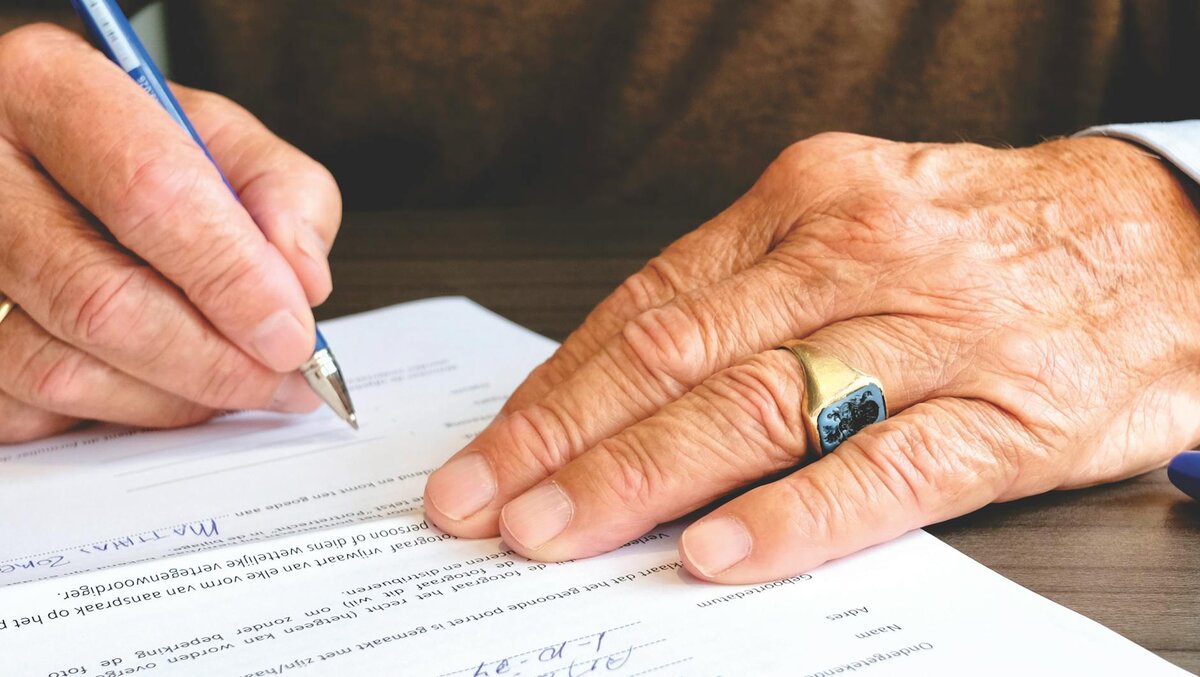Let’s Break This Down Together...
Not sure if your State Pension means you need to file a Self Assessment return? Many pensioners assume it’s all handled automatically, but that’s not always the case.
In this guide, we’ll explain how the State Pension is taxed, when filing becomes necessary, and the key situations HMRC looks at. You’ll also learn about allowances, extra income, and what to do if you live abroad.
By the end, you’ll know exactly when you need to file and how to avoid penalties or surprises. Ready to get clear on it all? Let’s dive right in!
When do pensioners need to file a tax return for state pension?
The simple answer is: not always, but in certain situations, yes. When you retire, your tax obligations may change, and you should review whether you need to file a self assessment tax return.
Your state pension is taxable income, but HMRC doesn’t take tax directly from your payments. Instead, they usually collect it through other means.
For most people, tax on state pension gets collected through the PAYE system on other pensions or earnings you might have. Failing to file a required tax return can have consequences, such as penalties or compliance issues.
But there are specific situations where you’ll need to complete a Self Assessment tax return for your pension income. Different circumstances, such as having additional income or changes in your personal situation, can affect whether you need to file.
How state pension is normally taxed
Your state pension payments arrive in your bank account with no tax deducted. That doesn’t mean they’re tax-free!
If you have other pensions (like a workplace or private pension), HMRC typically adjusts your tax code on these to collect the tax due on your state pension too. Your pension provider is responsible for administering tax deductions from your pension payments and reporting your income to HMRC.
HM Revenue ensures the correct amount of tax is deducted from your pension income, even when you have multiple pension sources.
This clever behind-the-scenes process means most pensioners don’t need to worry about filing a tax return.
Your tax code might look a bit odd because of this adjustment. It’s HMRC’s way of collecting the right amount without you needing to do extra paperwork. The tax due on your state pension is paid through adjustments to your other pension income.
However, this system only works if you have enough other pension income to cover the tax due on your state pension.

Situations that trigger Self Assessment for pensioners
You’ll likely need to file a Self Assessment if you only receive the state pension and it exceeds your Personal Allowance (£12,570 for 2024/25). You may need to fill in a Self Assessment tax return if your income goes above certain thresholds. If your total income is above the allowance, you may owe tax.
Having significant additional income from rentals, investments, or savings can also trigger the need for a tax return. Having more income from different sources may result in paying more tax, especially if it pushes you into a higher tax bracket. If you have savings or investment income, you may qualify for certain tax reliefs or allowances depending on your income level.
HMRC might specifically ask you to complete a return, especially if they think you have untaxed income.
If you’ve recently started receiving your pension and had previous untaxed income, you might need to file.
Living abroad while receiving a UK state pension often means you’ll need to complete Self Assessment to sort out your tax affairs. Your pension income may still be subject to UK tax even if you live overseas.
My neighbour John recently moved to Spain and was surprised when HMRC contacted him about filing a return. He hadn’t realised his UK pension would still be taxable while living overseas.
How to register for Self Assessment
If you think you need to file, check using HMRC’s online tool first to confirm your situation.
You’ll need to register by 5th October after the tax year you need to report for (e.g., by 5th October 2025 for the 2024/25 tax year).
You can register online through the Government Gateway, by phone, or by post using form SA1.
When registering, have your National Insurance number, personal details, and information about your income sources ready. After registering, you may need to wait for HMRC to process your details or issue a tax calculation.
Once registered, you’ll need to file your return by 31st January after the tax year ends (online) or earlier for paper returns.
Alternatively, HMRC may issue a Simple Assessment if you meet certain criteria. In this case, some pensioners may be placed into the Simple Assessment system by HMRC, where they do not need to complete a full tax return and instead wait for HMRC to send a tax calculation after the tax year.
Completing your tax return for pension income
State pension income goes in the ‘Pensions’ section of your Self Assessment form.
Taxpayers must ensure all pension income is accurately reported on their Self Assessment form.
You’ll need to know the exact amount of state pension you received in the tax year. Check your bank statements or contact the Pension Service if you’re unsure.
Other pensions, like workplace or private pensions, also go in this section but in different boxes.
Keep records of all pension statements and any correspondence from pension providers or the DWP. Good record-keeping helps you manage your tax obligations and avoid errors.
If completing a tax return feels overwhelming, tax charities like Tax Aid or Tax Help for Older People offer free assistance to eligible pensioners.

Final Thoughts
Understanding when you need to file a tax return for your state pension doesn't have to be complicated.
Most pensioners with multiple income sources won't need to worry as HMRC handles the tax through PAYE on other pensions.
If your state pension is your only income and exceeds your Personal Allowance, you'll likely need to register for Self Assessment.
When in doubt, it's always best to check with HMRC directly or seek advice from a tax professional or charity.
Simplifying Pension Tax Returns
Dealing with pension tax shouldn't add stress to your retirement years.
Our Tax Assistants explains pension tax rules in plain English, helping you understand exactly what you need to report and why.
Take a look at PIE if you'd like to see how we can make pension tax simpler for you.
Quick and Easy Guide to Add Pension Contributions
Follow these steps to add pension contributions in the Pie app
Open the Pie Tax App and find the 'Quick Add' button in the middle of the navigation bar.Click 'Quick Add' in the Navigation Bar

After clicking 'Quick Add', select 'Add tax relief' from the screen to open the options menu.Select 'Add tax relief'

Quick and Easy Guide to Add Pension Contributions
Follow these steps to add pension contributions in the Pie app
Open the Pie Tax App and find the 'Quick Add' button in the middle of the navigation bar.Click 'Quick Add' in the Navigation Bar

After clicking 'Quick Add', select 'Add tax relief' from the screen to open the options menu.Select 'Add tax relief'













